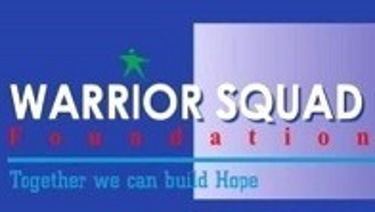Our current projects
Karamoja Resilience and Empowerment Project (KAREP)
The overall goal of the proposed project is to contribute to “Resilient and sustainable livelihoods for 300 smallholder farmers (60% women) from 150 Households in Karamoja Sub-region, Northeastern Uganda”. Supported by three specific objectives (SOs): 1) To increase food and income security for 300 smallholder farmers by 2028; 2) To strengthen the capacity of 300 smallholder farmers to adapt to climate change impacts; and 3) To increase participation of women smallholder farmers in decision-making processes by 2028.
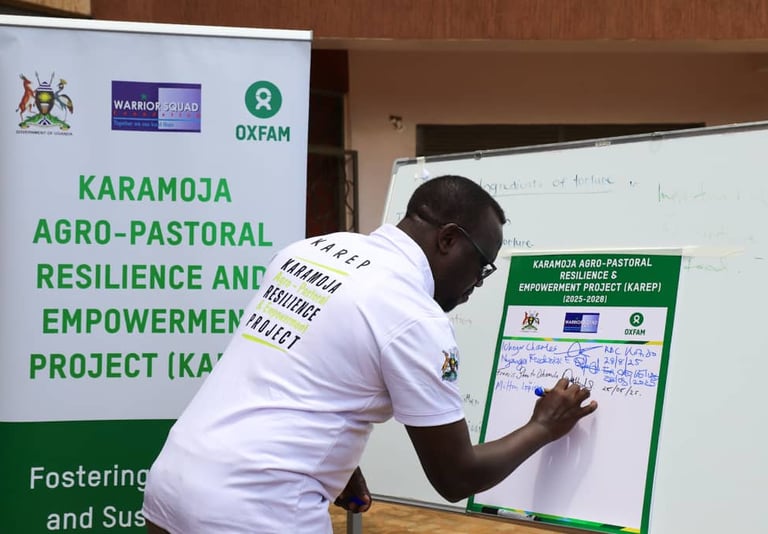

Building Resilience in Conflict affect and fragile Communities of Karamoja (BRICK)
Funded by KOICA and UNDP Uganda. November 2023- February 2026
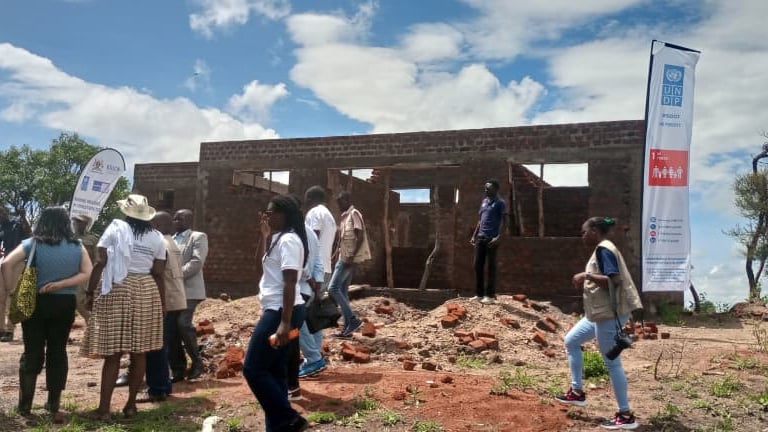

The Building Resilience in Conflict-Affected and Fragile Communities of Karamoja (BRICK) Project, funded by KOICA and UNDP, strengthens peacebuilding and promotes gender-responsive livelihoods in Kaabong, Kotido, and Moroto.
The project aims to "promote sustainable development through capacity building, managing socio-economic risks, and responsive livelihoods via two objectives. Objective 1: Promote peaceful coexistence through functional peace infrastructure, and Objective 2: Enhance incomes for vulnerable households through environmentally friendly livelihoods and strengthen essential service institutions.
Expected Results:
Outcome 1: Mitigation of conflicts and violence, and peacebuilding mechanisms established. Achieved through:
Shared resource pool (Water for production and domestic use).
Cross-border and inter-district cooperation.
Strengthening local peace mechanisms.
Sensitization and Outreach.
Support coordination forums.
Psychosocial support.
Outcome 2: Strengthened livelihoods and resilience actions. This will be achieved through:
Cash for Work interventions;
Support for Vocational Education, Village Saving and Loan Associations;
Provision of startup kits to youth;
Support Local Governments in innovation and start-ups;
Project Coverage
Karamoja sub-region: 3 Districts, 6 Sub-counties
Kaabong: Loyoro, Timu
Kotido: Nakapelimoru, Rengen
Moroto: Nadunget, Rupa
Beneficiaries: 12,000 direct and 60,000 indirect beneficiaries, focusing on vulnerable groups.
Total Budget USD 700,000
Fostering Climate Resilient Agriculture (FCRA)
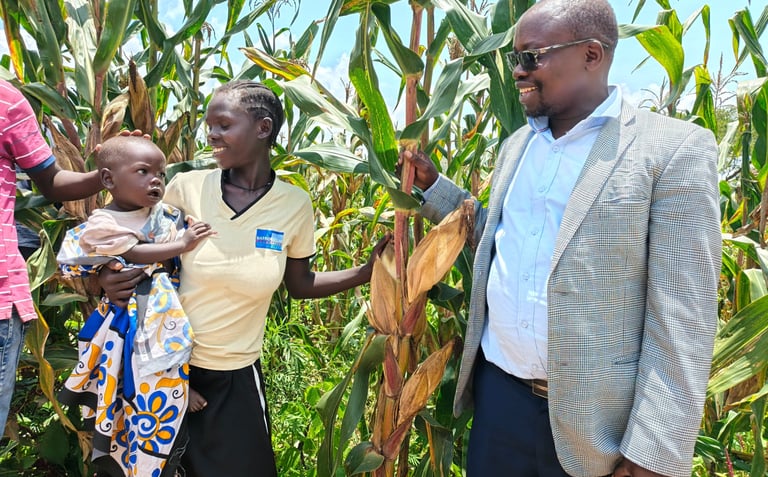

Through these interventions, we have contributed to the adoption of CSA technologies, stronger market engagement, and improved food and income security, empowering women and men to withstand and adapt to the risks of climate change.
Our Fostering Climate Resilient Agriculture (F-CRA) pilot 7 Project, funded by GIZ under SCIDA III, is implemented in Kaabong District, Karamoja, for a period of 12 month (November 2024 – October 2025). The project is focused on enhancing the resilience of agro-pastoral households, particularly women, against the impacts of climate change. By promoting climate-smart agricultural (CSA) practices, the project has aimed to increase household crop production, improve food security, and enhance income generation. It has intentionally prioritized women’s empowerment, ensuring that 30 of the 50 targeted farmers (60%) were women, with men making up the remaining 40%, thereby advancing gender equity in agriculture and resilience-building.
So far, the project has formed two farmer groups and trained 50 farmers (including 30 women and 20 men) in conservation sustainable agriculture (CSA) approaches to boost food production. It has also strengthened pre- and post-harvest handling through the use of innovative smart projector training technology. Additional milestones include the establishment of demo gardens, distribution of quality farm inputs, creation of market linkages with the private sector, and facilitation of farmer exposure visits to successful CSA practices.
Download project brief...
Tuberculosis (TB) remains the leading cause of death worldwide among infectious diseases, causing significant morbidity and mortality. Annually, approximately 10 million people are diagnosed with TB, and 1.5 million lives are lost to the disease, according to the World Health Organization (WHO "Global Tuberculosis Report," 2024). Uganda is among the 30 high TB-burdened countries, and North Karamoja contributes significantly to the nation’s TB incidence. The region faces unique challenges stemming from the mobility of at-risk populations due to nomadic lifestyles, limited access to healthcare services, low awareness of TB symptoms, and inadequate knowledge of prevention and treatment methods. Addressing TB in North Karamoja requires tailored, community-based interventions.
With funding support from USAID through the Infectious Diseases Institute, WSF has been implementing the USAID Local Partner Health Services – TB Activity (LPHS-TBA) across four districts in North Karamoja: Kotido, Kaabong, Abim, and Karenga.
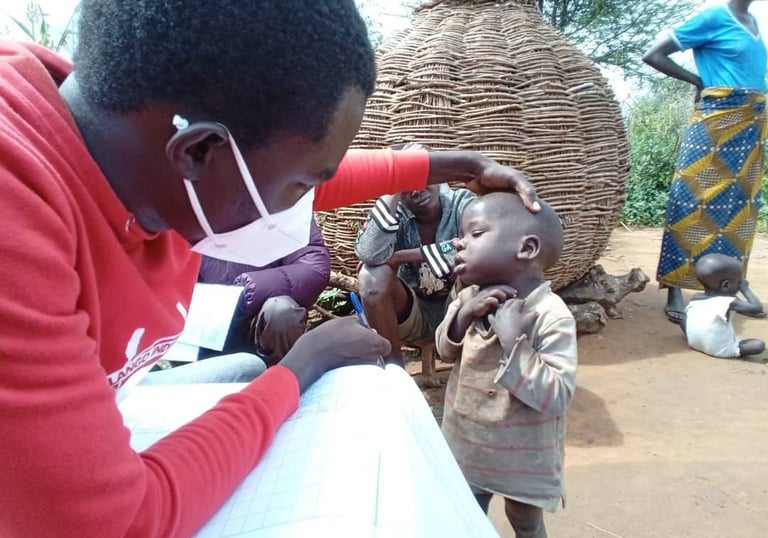

Local Partner Health Service on Tuberculosis (LPHS TB) Activity...
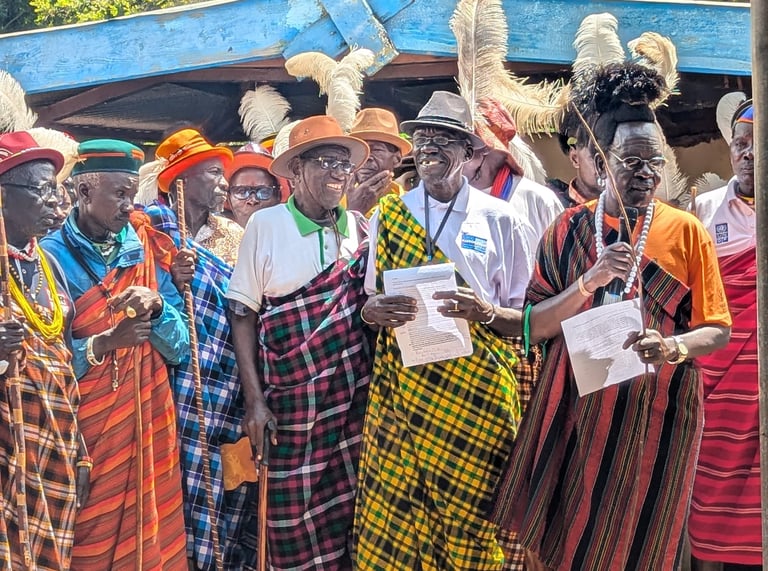

Ugandans for Peace
WSF, in consortium with WIPC and with funding support from USAID, is implementing the Ugandans for Peace Activity in the Karamoja sub-region of Uganda, covering the Districts of Kotido, Kaabong, Abim, and Moroto for a period of 42 months.
The Activity is focused on responding to election-related violence, particularly during the election cycle, that threatens social cohesion, democratic principles, and the well-being of citizens, exacerbated by ineffective mechanisms to prevent and respond to political, religious, resource, and ethnic identity-based conflicts that have led to the persistent use of violence by state and non-state actors. General elections in Uganda have been characterized by political tensions and violence. Key challenges to the attainment of peaceful electoral processes are the persisting vulnerability of youth to manipulation by political actors in election-related violence to advance their political agenda; inadequate capacity of political actors to adequately address and manage the conduct of violence-free elections in a context where mechanisms to prevent and respond to political, resources-based, and identity-based conflict are weak; and the inadequate capacity of women and youth to actively participate in the prevention, mitigation and response to violence, as well as the identification of conflicts and resolution of disputes using local solutions that build peaceful co-existence.
The overall goal/purpose of the Activity is to “Prevent, mitigate and respond to political violence in order to build social cohesion and promote peace in Uganda supported by three IRs:
IR1) Political actors including security agencies commit to promoting a non-violent electoral process and ensure peace;
IR2) Initiatives to identify, mediate and resolve electoral related violence undertaken; and
IR3) Communities become more resilient to incitement and participation in violence.
